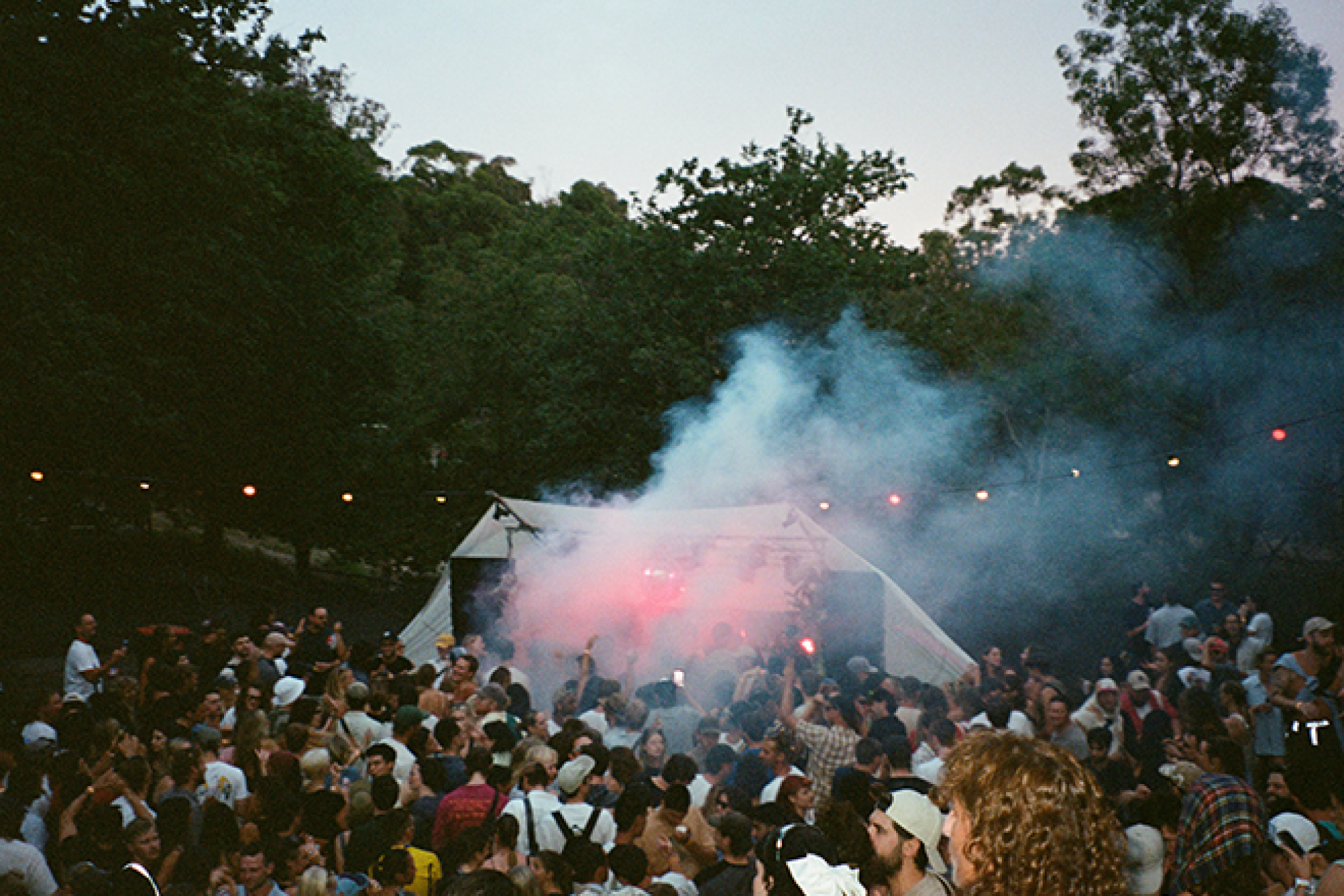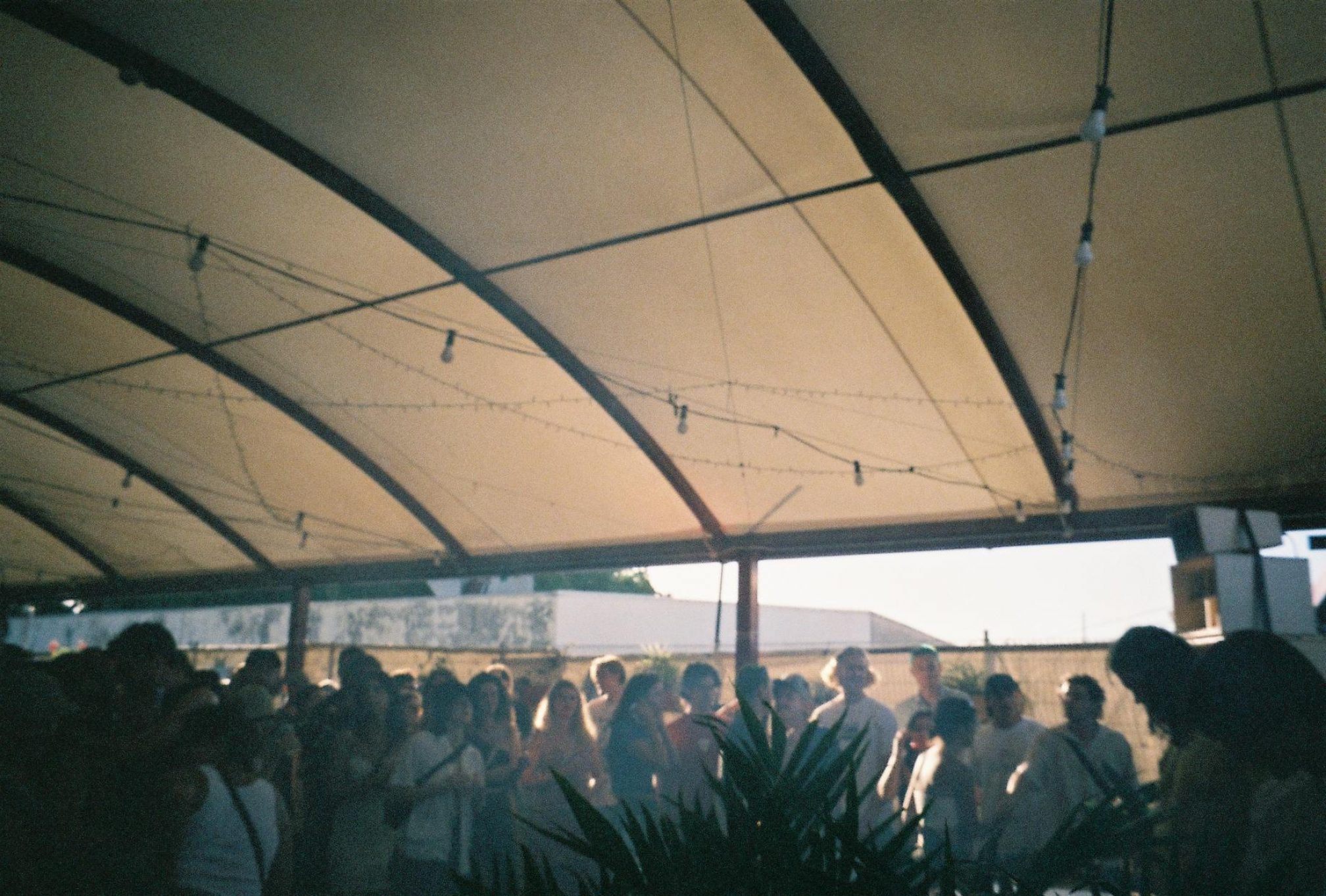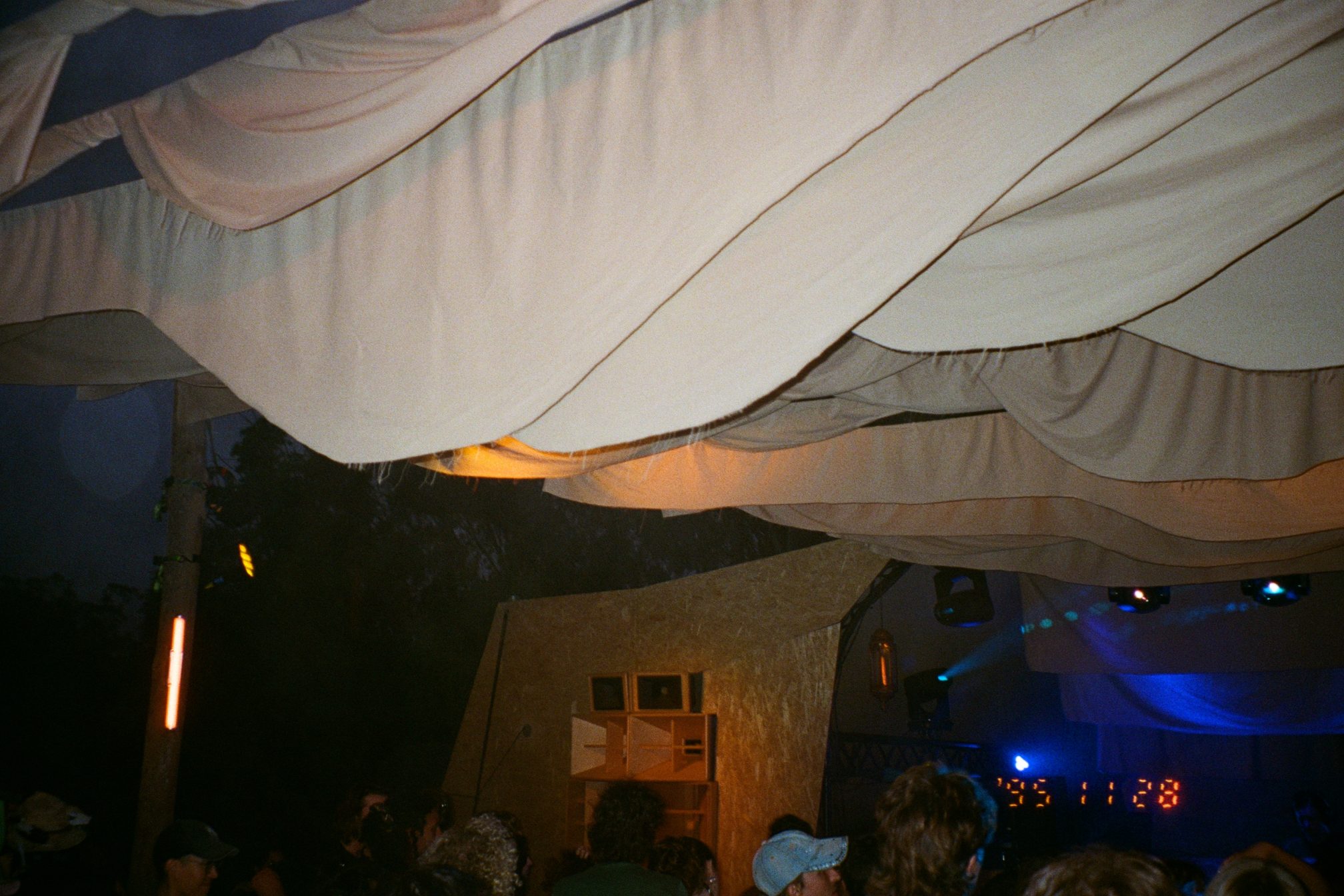 SCENE REPORTS
SCENE REPORTS
A case for not going to Europe
Is the EU summer harming venues & making closer international relationships impossible?
In the last fortnight, we shared a story exploring the variety of reasons that many artists and punters choose to work and holiday in Europe, and the social and professional privilege that many enjoy by doing so.
It felt only right to offer an alternative to that line of thinking.
While many within our national dance music community aspire to tour Europe, to visit legendary venues and outrageous festivals, there is a clear division between the people who can and do, and the people who won’t or can’t.
The vacuum left behind by many local artists and punters is a feeling that those who choose to stay, or choose to travel elsewhere, feel on a regular basis.
In my research, my friend Joe pointed me to a Resident Advisor feature interviewing Naarm/Melbourne icons Sleep D, all the way back in 2017. They made the point very clear that they had no desire to complete the move to Europe.
-
"I think that was the mould we were trying to break," Syawish said when I asked about the classic Melbourne-to-Europe move. "We were trying to become that label that could break some of these artists instead of them trying to look elsewhere. Instead of using it as a stepping stone to Europe, why not make Melbourne or Australia something that people really like looking at and being a part of? We've always discussed how we like living here. It's great going to Europe for a bit, but then we miss Melbourne and everything about it. I don't think it's really 'us' being there."
- Andy Webb, Resident Advisor (2017)
While Sleep D have enjoyed many tours to Europe in the time since that interview, their commitment to supporting Australia’s dance music community has never faltered. As many artists and punters enjoy their time in the EU sun, we’re presented with an opportunity to look inwards and understand exactly why it is that Europe is “the place to be”, and what we might be missing out on.

For many, particularly during a cost of living crisis, money is one of the main contributing factors in their decision to stay home or travel elsewhere.
Anuraag (they/them), staff of Naarm venue Miscellania, DJ and founder of Cool Room, is surprised about just where people are getting all this money from. “Even as somebody who's fairly class privileged, I'm like, how do people go to Europe for three months? Like, how the fuck do you do that?” they asked.
Jess Negus (she/they), aka Mintox, a Boorloo/Perth-born DJ, admits that she’d very much like to be in Europe if she could, “to be brutally honest, if I could afford to take time off work and go to Europe, I probably would!”
READ: The European Pipeline: Where on earth has everybody gone?
Finances aside, Anuraag went on to share their perspective on why Europe, above all other regions, had such a grip on Australia’s idea of what the peak of electronic music is. “I think it's more difficult to penetrate the scene there. Everyone probably has friends that are going to Europe every summer and everybody knows all these like cultural touchstones like Dekmantel, Berghain and De School. There’s a common level of cultural knowledge to it.” Eora/Sydney-based promoter and DJ Lewba (he/him) shared this sentiment, saying “I feel like there is maybe a bit of a zeitgeist that has long come from the expats here that Europe and the UK are the 'homes of clubbing in the world”.
Jess made the point that we’re regularly reminded of the success of these kinds of career paths also, saying that “when you see members of your community successfully forge new connections and stability somewhere, the reality of that seems more achievable for yourself, especially if you have your own connections there.”
While it may not be at the forefront of everyone’s minds when they’re booking their holiday, this idea of Eurocentricity is important to recognise in our curiosity with Europe. Australia and New Zealand, both colonies, have far deeper and clearer ties to many European nations than we do with our closest neighbours in Asia.
-
To say that artists subconsciously aspire to play in Europe because of deep cultural roots however, isn’t doing justice to the opportunities available in the EU. Anuraag puts this down to a professional pipeline, with Europe acting as the go-to place for any aspiring DJ, label or artist looking to branch out of their smaller circles back home.
“I think it's just the path you're prescribed as a DJ. You play your local shows and then you release some tracks and then you start touring Europe and then you come back and then you move to Europe and you do some more tours and it just kind of grows from there. It’s this escalator that you're meant to get on and then continue riding from destination to destination.”
A recent study, conducted by European-based organisation Tool Room Academy, found that 76% of new artists said that a music career was financially unsustainable. Earlier this year, Musicians Australia - an initiative within the Media, Entertainment and Arts Alliance (MEAA) - published a report revealing that half the musicians surveyed made less than $6,000 from music in the last year.
That’s 15% of the national minimum wage.
With figures like this, a desire for artists to try their hand at overseas markets becomes even more understandable.
Jess points out however, that even with these local difficulties in making a music career, a trip overseas to grow your audinece is one steeped in privilege. “There’s no definitive answer to this, and I can’t speak on behalf of everyone,” Jess clarified, “but most DJs who have the ability to focus on their music career and take it to the point where they can tour Europe or elsewhere regularly without destabilising their livelihoods at home, come from backgrounds of financial privilege.”
Outside of professional development, is the flocking to Europe justified? Anuraag doesn’t entirely think so, and references experiences with international acts who agree.
“[International artists] come here and they’re like “this is really incredible.” Often we take for granted what we have here, and in many ways I think it’s better than Europe. The parties often serve a very particular community… [whereas in Europe] I think the scene infrastructure means that people work less at a relational level.”
For Lewba, this critique of Europe came in the form of a quote from Detroit legend Mike Banks, “All y’all moving to Berlin, it’s too late. Berlin already did it. You need to go somewhere, Warsaw, Poland or Brisbane, Australia. Take your ass there and start something."

The familiarity of Europe, of its locations, its clubs, artists and languages, while arguably rooted in this aforementioned Eurocentricity, could also be a direct result of our desire to “log off” when on holiday. When asked about this, Anuraag’s perspective was that it came from an “apprehension towards the foreign.” They went on to explain: “there’s this lack of curiosity or desire to actually have new experiences in places which might be pretty challenging.. it reflects this broader political diplomatic strategy of Australia having really strong ties with other Western powers and tenuous, friction building relationships with Indonesia and China.”
While Indonesia may be among the most popular destinations for Australian and Kiwi travellers, and Japan even attempting to slow the influx of tourists, Australia and New Zealand’s relationships with Asian dance communities remain largely unexplored.
Booming dance cultures in Vietnam, Indonesia, China and so many more regions, as well as the continued rise of outlets like Mixmag Asia, is proof that a change to this status quo may very well be on the horizon. With such comparatively low costs for flights to Asian countries, it’s a relationship that Anuraag is already exploring for Miscellania. “They’re right there,” they said, “and there's a lot more alignment because of our geographic position. We need to cultivate these relationships. It would be so great if Australian artists could just do an Asia tour and we're playing all these Chinese and Japanese artists’ tracks and then they come here.”
Outside of the connectedness between global dance communities, the impact that this yearly Europe-based exodus has on local scenes is massive. Lewba likens this to the vacuum left post-COVID, and that “there were no international artists coming to Australia so the entire touring scene collapsed and it all went back to local artists.”
The cancellation of festivals like Splendour in the Grass and Groovin The Moo has quickly become the biggest musical conversation around Australia. As Anuraag explains however, the EU summer is a yearly reminder of the stress currently being placed on our venues.
“Festivals are becoming a more focal point of dance music than ever, but I think the pressure on venues is still probably comparable, maybe worse. At least at venues where the audience is primarily people who are generally broke, and more broke than ever right now.
So many of our biggest promoters, biggest DJs and most dedicated punters are just funnelling cash into other things over that period. You really notice the dip in attendance over those months and really try to strategize on ways to help with it.”
-
This period of time where artists are away, in our previous piece was described as an opportunity for smaller artists to grow. In Anuraag’s eyes, however, “I still kind of see that as like a structural loss and negative.”
For Mintox, the idea of escaping for another hemisphere’s Summer is one that may not last the test of climate change. “Going out on a limb here, but I think the winter months in Australia are going to have to become our peak party months as the effects of climate change kick in - and we’re going to have to learn to adapt and take advantage of them” she retorted. “It’s already been demonstrated for years at this point that our summer festival season is no longer viable in the ways that it used to be. We need to start thinking about how we’re going to future proof our scene through Antipodean winter.
While the yearly pilgrimage to Europe shows no signs of slowing down, as Australia and New Zealand’s own dance music cultures grow, it’s not naive to hope that this pressure on venues becomes less pressing. So too, the influence of Asian countries on Australia and New Zealand, and our own Asian populations, will no doubt forge stronger relationships with our neighbours closer to home, and shake up an otherwise unchallenged and eurocentric status quo.
Until then, see you in Summer.
-
Jack Colquhoun is the Managing Editor of Mixmag Australia, find him on Instagram.


